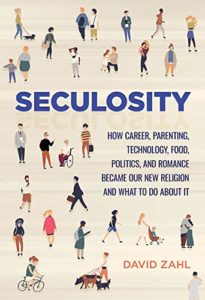O God, who from the family of your servant David raised up Joseph to be the guardian of your incarnate Son and the spouse of his virgin mother: Give us grace to imitate his uprightness of life and his obedience to your commands; through Jesus Christ our Lord, who lives and reigns with
you and the Holy Spirit, one God, for ever and ever. Amen. (BCP)
St Joseph the Carpenter. He often is a forgotten saint.
Unless you are trying to sell your house and you bury a statue of him in the front yard…
But this time of year, Joseph often comes to mind. Even if is just for a moment.
I think of Joseph & how he is often portrayed in Eastern Orthodox Nativity Icons.
“Unlike the well-known Nativity scenes in the West, in Orthodox Icons Joseph is usually found in the bottom of the icon, away from his betrothed and her Son, but still close as their protector. Sometimes seen listening to an old man, Joseph looks troubled. He is beset with new doubts regarding this birth, and these doubts are delivered to him by Satan in the form of an old man… These arguments, which ultimately did not cause Joseph to stumble, have constantly returned to trouble the Church, and are the basis of many heresies regarding Who Christ was and is. In the person of Joseph, the icon discloses not only his personal drama, but the drama of all mankind, the difficulty of accepting the Incarnation of God.” (A Reader's Guide to Orthodox Icons)
But Joseph being troubled must have taken place, I think of the unrecorded conversation between him and Mary.
It must have been a painful conversation.
We’ve all experienced that kind of devastating encounter: when we were told we were no longer needed, when we discovered that someone we trusted betrayed us.
The evangelist Matthew leaves that conversation out of his story of Jesus’ birth. But we know it took place: when Mary told Joseph she was with child. We know how Joseph felt because we’ve felt that way: betrayed, foolish, naïve, used.
But the difference is that, despite his own pain, Joseph realizes Mary’s own confusion and anguish and fear over what has happened. But love enables these two hearts — no matter how broken and scared — to do that.
Joseph could not and would not subject her to the Law of the time; he would not expose her to public humiliation and shame. They would work this out “quietly.” Their difficult conversation ended on a note of compassion and mercy.
And then Matthew picks up the story from there: how God interceded and Joseph trusts God in the angel’s message, and God’s Christ enters human history in the person of Jesus.
WH Auden’s “For the Time Being: A Christmas Oratorio,” picks up that conversation…
“Auden’s Joseph is a man consumed with uncertainty, who genuinely wants to believe Mary–but like so many of us, wants God to make this risky trust easier, to give him certainty and silence the whispering voices within and outside his head” (Bridget, Women in Theology)
Joseph: All I ask is one
Important and elegant proof
That what my Love had done
Was really at your will
And that your will is Love.
Gabriel: No, you must believe; / Be silent, and sit still.
And further on in the Oratorio are these lines…
You must behave as if this were not strange at all.
Without a change in look or word,
You both must act exactly as before;
Joseph and Mary shall be man and wife
Just as if nothing had occurred.
There is one World of Nature and one Life;
Sin fractures the Vision, not the Fact; for
The Exceptional is always usual
And the Usual exceptional.
To choose what is difficult all one’s days
As if it were easy, that is faith. Joseph, praise.
It was said by many detractors that Jesus was born in scandal. But we know better. Jesus was born in mercy and compassion. God became one of us, out of love, not strange at all.
Joseph’s response is the first light of the Kingdom of God that this little boy — Joseph’s little boy — would proclaim.
In today’s Gospel — Matthew’s version of Jesus’ birth — God’s plan of humankind’s salvation depends on Joseph, whose life has been turned upside by the angel’s news. Joseph accepts the son as his own as a matter of love and compassion, of trust and faith.
To choose what is difficult all one’s days
As if it were easy, that is faith. Joseph, praise.
As if it were easy, that is faith. Joseph, praise.
God’s birth in our midst depends on human partners — a Mary, a Joseph, you and me — willing to put aside our own fears and hurts to be God’s ministers of mercy, prophets of God’s justice, mirrors of God’s compassion.
In this season and in every season, may we imitate the compassion and faith of Joseph: to seek understanding and acceptance within our families even at the cost of our own expectations and hopes, to seek to be sources of affirmation and support for our spouses and children, to be the protectors of the world God has given into our hands. Amen.




